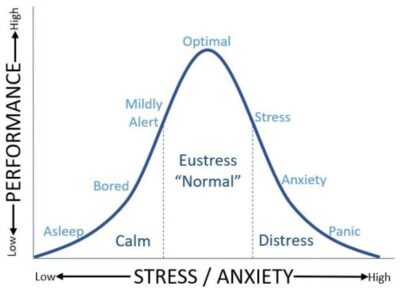High Functioning Anxiety: Symptoms & Strategies

Do ever feel like you’re constantly juggling a million things, all while battling anxiety deep within? You’re not alone. In this blog post, we’ll dive into the world of high functioning anxiety, uncovering what it is, the sneaky symptoms it brings, the unique challenges faced by anxious achievers like you, the underlying desires that drive you, and most importantly, effective methods to decrease anxiety.
Get ready to conquer the chaos and find your way to thrive.
Understanding High Functioning Anxiety
Okay, let’s break it down. High functioning anxiety is like being a pro at keeping up appearances while dealing with a rollercoaster of worry on the inside. You know, that relentless urge for perfection, the constant drive to succeed?
Yep, those are the hallmarks of high functioning anxiety. And the craziest part? It often flies under the radar because you’ve mastered the art of looking like you’ve got it all together.
Does this sound familiar?
Recognizing Anxiety Symptoms
But here is the truth… appearances can be deceiving. Behind that composed facade lies a whirlwind of anxiety. Racing thoughts? Check. Second-guessing yourself? Check. Restlessness that makes you want to crawl out of your skin? Double check. And let’s not forget the ever-present fear of failure.
If any of this sounds familiar, it’s time to shine a light on those sneaky symptoms and acknowledge what you’re truly dealing with.
Challenges Faced by Anxious Achievers
Being an anxious achiever isn’t a walk in the park. The pressure to perform at an exceptional level is relentless, and the fear of falling short can be paralyzing. Balancing work, relationships, and self-care feels like walking on a tightrope. Trust me, I get it.
The struggle is real, my friend. But together, we can navigate through these challenges and find a way to thrive amidst the chaos.
The Desires of Anxious Achievers
Behind every anxious achiever, there’s a burning desire to prove their worth, gain validation, and avoid judgment. It’s that deep-seated need to be seen as successful, accomplished, and in control.
But let’s take a step back and remind ourselves that we’re more than our achievements. Embracing self-acceptance and finding fulfillment beyond external validation is the key to unlocking true peace of mind.
It may not be worth it to achieve this high level of success if there is such a cost to you and your mental health.
So what do we do about it?
Strategies for Decreasing Anxiety
✨Building Awareness of Symptoms
Awareness is the first step towards change. By becoming more attuned to your own symptoms, you can develop a deeper understanding of your triggers and patterns.
Keep a journal to track your thoughts, emotions, and physical sensations. This will help you identify recurring patterns and gain insights into what fuels your anxiety. With increased self-awareness, you can proactively address your anxiety and take steps to manage it effectively.
✨Coping Strategies and Self-Care
Okay, let’s get to the good stuff. First things first, let’s take a deep breath.
Mindfulness exercises like meditation and deep breathing can work wonders. Consider incorporating mindfulness and meditation into your daily routine. These practices can help calm your mind, increase self-awareness, and cultivate a sense of presence in the moment. Explore different mindfulness techniques, such as body scans, breathing exercises, or guided meditations, to find what resonates with you.
When you are anxious, you may be likely to through your basic needs out the window – limiting basic hygiene, eating unhealthy, not sleeping well. But it’s actually during these times that adhering to your basic needs is most important.
Setting boundaries and practicing self-compassion are also essential steps in coping with your anxiety. Be kind to yourself, my friend!
Remember, self-care isn’t a luxury, it’s a necessity. Prioritize your well-being.
✨Shifting Mindset and Behavior
How can we tackle this anxiety head-on and find some reprieve? Changing your mindset and behavior can have a profound impact on decreasing high functioning anxiety.
Start by challenging negative self-talk and perfectionistic tendencies. Practice self-compassion and remind yourself that you are human, and it’s okay to make mistakes. Embrace a growth mindset, focusing on progress rather than perfection. Seek clarity in what is most important to you and prioritize it.
✨Support
Additionally, seek support from loved ones or consider joining a support group where you can connect with others who understand what you’re going through. Engaging in therapy or counseling can also provide you with valuable tools and strategies to manage your anxiety effectively.
Conclusions
We covered a range of strategies to decrease high functioning anxiety and find greater calmness in your life. By building awareness of your symptoms, shifting your mindset and behavior, and incorporating self-care practices, you’re taking significant steps toward thriving amidst the chaos.
Remember, managing high functioning anxiety is an ongoing journey. Be patient and kind to yourself. Celebrate your progress and seek support when needed. You are capable of breaking free from the grips of anxiety and living a fulfilling, balanced life.
Embrace the power within you and continue your journey toward well-being. You’ve got this, anxious achiever!




